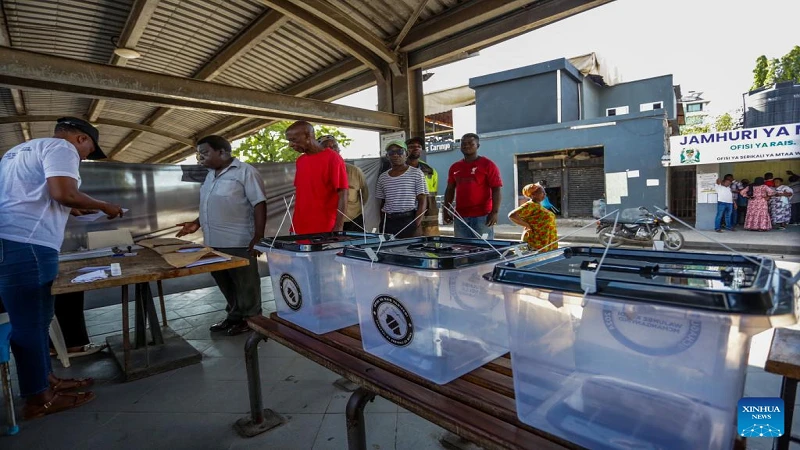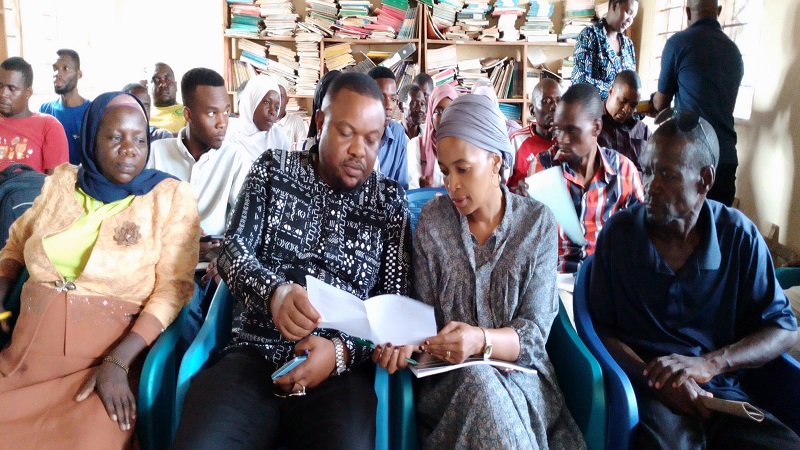Nigeria, Egypt top stock markets with best ten-year returns record

Investors who took a long position in eight major African stock markets made more money in Egypt, Nigeria and Ghana than any other, with each surpassing 100 percent cumulative returns since 2014, BusinessDay trend watch shows.
The eight major markets tracked are: Côte d’Ivoire (BRVM-CI), Nigeria (NGX-ASI), Egypt (EGX-30), South Africa (JSE-ASI), Morocco (MASI), Kenya (NSE-ASI), Ghana (GSE-CI), and Botswana (BSE-DCI).
In the past 10 years, Egypt’s market has yielded the highest cumulative return of 351 percent, followed by Nigeria’s 147 percent, and Ghana’s 121 percent.
Others major Africa stock markets and their performances from 2014 to 2023 are: South Africa (+85 percent), Morocco (+62 percent), Côte d’Ivoire (+19 percent), Botswana (+11percent), and Kenya, which recorded negative cumulative return of 12 percent in the reviewed 10-year period.
Temi Popoola, CEO, Nigerian Exchange Group, told BusinessDay that, “Nigeria’s capital market has consistently stood out as a hub of resilience and innovation, offering compelling opportunities for investors. Over the past decade, the consistent outperformance of our blue-chip companies has been a critical driver of market returns. These companies, which anchor the market index, have exhibited remarkable growth and resilience even during challenging economic cycles.”
Speaking further, he said, “High inflation has also shaped investment strategies, with equities becoming a preferred hedge. As a result, share prices have often adjusted in line with inflationary trends, preserving investor value. Additionally, strengthened regulatory frameworks, especially following the 2008 financial crisis, have bolstered market integrity and investor confidence.”
Popoola said another key factor is the number of strategic new listings, which have catalysed secondary market activity.
“When paired with macroeconomic reforms, these listings have heightened the appeal of naira-denominated assets to international investors. Finally, the post-COVID era has seen reduced yields in fixed-income markets, driving greater interest in equities and fueling robust market performance over the years,” the NGX CEO noted.
He said the NGX Group is encouraged by the positive trajectory of the market, which reflects the impact of targeted macroeconomic and sectoral reforms, stressing that the rebound of companies that successfully adapted to currency devaluation challenges, reigniting investor interest and fostering renewed confidence were key market drivers in 2024.
“Notably, reforms in critical sectors like oil and gas have been transformative. The removal of subsidies and exchange rate liberalisation have not only enhanced operational efficiency but also boosted the overall performance of listed companies in this sector. These policy changes have significantly influenced market dynamics, creating a ripple effect of growth and opportunity.
“As we look toward 2025, we anticipate that a stable macroeconomic environment and the continuation of these strategic reforms will sustain this momentum. Our outlook remains positive, with expectations for increased liquidity, strengthened investor confidence, and sustainable growth across the market. These elements will be pivotal in maintaining the upward trajectory and delivering value for all market participants,” Popoola noted.
Year-to-date (YtD), Nigeria’s stock market has risen by 35.25 percent, according to December 20 trading data seen by BusinessDay. Market data also show that year-to-date, the stock market of Côte d’Ivoire, a Francophone country, has risen by 28.11 percent. Egypt’s market has risen this year by 22.63 percent, while South Africa’s market is up by 9.85 percent.
Other markets and their return YtD are: Morocco (+21.76 percent), Kenya (+31.73 percent), Ghana (+53.65 percent), and Botswana (+12.54 percent).
The Nigerian equities market has sustained its positive momentum lately, supported by strong buy-interest across insurance, consumer goods, and banking counters.
The impressive performance at the Nigerian bourse further reflects the continued investor confidence in the market, analysts say.
This activity pushed the NGX All-Share Index (NGX-ASI) to beyond the 100,000-point milestone to 101,129.09 points as at Friday December 20.
Also, market capitalisation has risen to N61.30 trillion driven by new listings, banks recapitalisation exercise and improved bargains, amid impressive yields in the fixed income space.
The Monetary Policy Committee (MPC) of the Central Bank of Nigeria (CBN) recently raised the benchmark interest rate, also known as the Monetary Policy Rate (MPR), to 27.50 percent from 27.25 percent.
Analysts had expected some bearish undertone in Nigeria’s equities market as fixed income-biased investors took advantage of the high yields in the fixed income space.
Rather, the bulls have remained incentivised to persist in bargain hunting, given the tremendous mid-long-term opportunities in the equities market. The impressive performance seen at the Nigerian bourse further reflects the continued investor confidence in the market.
“The bullish markets closely align with strong economic data from the previous weeks, including an eight consecutive trade surplus at N5.81trillion in Q3 2024, improved capital importation, and increased foreign reserve accretion,” Futureview analysts said in their December 20 note.
“Analysts say the markets will sustain their rally with a stable FX market, elevated yields in the fixed income, and buying interests in the banking, insurance, and oil and gas sectors ahead of the Santa Claus rally,” Futureview analysts noted.
They further said that Nigeria’s inflation rate rose to 34.60 percent in November 2024 from 33.88 percent in October 2024, marking the third consecutive monthly increase and reaching a near 30-year high, attributable to the sustained low food productivity, devaluation of the naira and multiple petrol price hikes, which have exacerbated the cost-of-living crisis.
The analysts said the three-month increase followed two consecutive moderations observed in July and August 2024.
“Despite these inflationary pressures, the Nigerian bourse sustained a positive rally, and the foreign exchange (FX) market showed relative stability, bolstered by sustained market sentiments and reforms aimed at enhancing transparency and investor confidence.
“The Central Bank of Nigeria’s efforts, including implementing an electronic foreign exchange matching system and increased diaspora remittances, have contributed to this stability,” the analysts further said.
Top Headlines
© 2025 IPPMEDIA.COM. ALL RIGHTS RESERVED

























